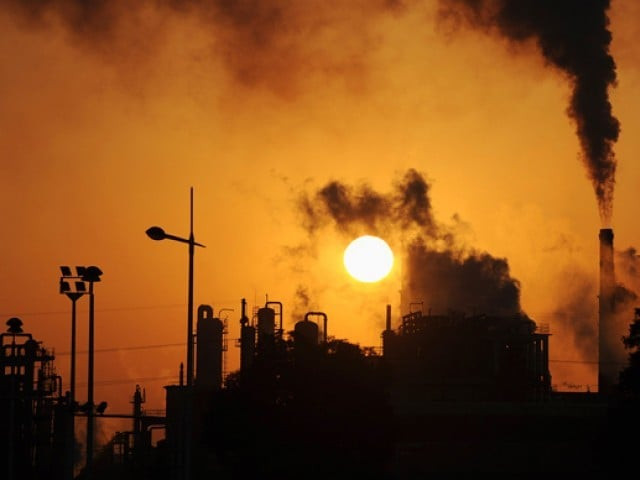Steel units in capital contributing to air pollution
Climate change ministry informs Senate about action taken against polluting units

Representational image. PHOTO: REUTERS
This was disclosed by the Ministry of Climate Change in a written response submitted to a question asked by a lawmaker in the upper house of parliament recently.
Islamabad pollution: Pak-EPA monitoring steel units
The ministry said that there were a total of 185 industrial units in the designated industrial districts of the Islamabad Capital Territory (ICT), including Sector I-9, Sector I-10 and the Industrial Triangle Kahuta (ITK). Of these, 35 were steel re-rolling units.
“A major source of air pollution in the federal capital is the steel units,” the ministry stated in its response, adding, “[These units] are regularly monitored by the Pakistan-Environmental Protection Agency (Pak-EPA).”
Muttahida Qaumi Movement-Pakistan (MQM-P) Senator Mian Ateeq Shaikh had asked the ministry to inform the house about the state of air quality in the capital, whether smoke emitted by different factories in ICT was increasing day-by-day and the action taken so far against them.
In response, the ministry filed a written reply.
The government said that in one of the previous sittings of the upper house, the monitoring team — which specifically monitors steel furnaces and steel re-rolling mills in the capital — had noted that a number of units were operating in violation of the National Environmental Quality Standards (NEQS) since they have not installed air pollution control devices.
In this regard, the ministry disclosed that they had inspected 19 steel units in Sector I-9 and I-10 and the ITK between July 3 and July 5, 2018.
The inspection was conducted to check the status of environmental compliance. Following the review, steel industrial units were advised to strictly comply with the NEQS.
Moreover, the Pak-EPA had sealed four steel furnaces and re-rolling mills for not complying with the June 30, 2018, orders of the Supreme Court of Pakistan (SC).
The Pak-EPA had issued Environmental Protection Orders (EPO) to the mills and imposed fine of Rs5 million on each industrial unit.
The industrial units sealed include Pak-Iron Re-Rolling and Furnace Steel in Sector I-9/2, Mustehkam Steel Mills (furnace) in Sector I-9/2, Siddiqui Steel Mills (furnace) in Sector I-9/2 and the Karachi Steel (KSR) in Sector I-10.
Apart from these steel units, the ministry said that there were 185 other industrial units operating in the ICT. These include flour mills, food and beverage manufacturers, marble industries, oil and ghee manufacturers, soap and detergent manufacturers, plastic industries, textile industries, pharmaceutical companies, electric and engineering and others.
Moreover, the apex court in its August order in a human rights case had expressed its dissatisfaction with the level of environmental pollution in the federal capital.
Smoke-spewing factories add to capital pollution
In its order, the top court had stated that factory owners were not sufficiently equipped to either control or monitor pollutants and emission from their factory to the satisfaction of the Pak-EPA.
“We have granted numerous opportunities to the factory owners to update the standards set by Pak-EPA, however, the needful has not been done so far. Therefore, we direct all the factory owners to deposit a sum of Rs5 million each to the registrar of this court by August 30, 2018, otherwise until the time effective pollution and emission control systems are installed, their factories shall remain closed,” the apex court had maintained.
Published in The Express Tribune, October 8th, 2018.



1724319076-0/Untitled-design-(5)1724319076-0-208x130.webp)















COMMENTS
Comments are moderated and generally will be posted if they are on-topic and not abusive.
For more information, please see our Comments FAQ